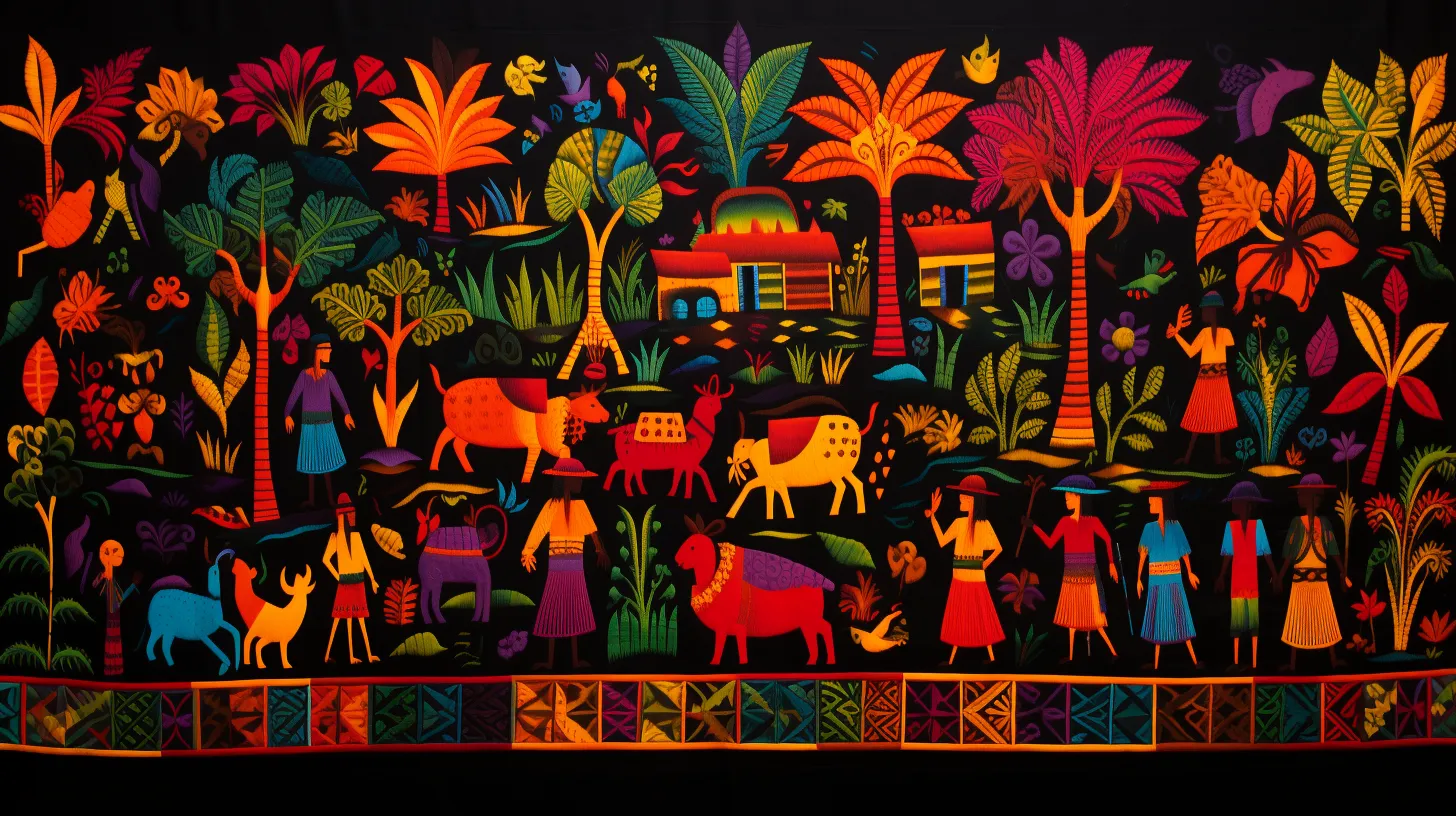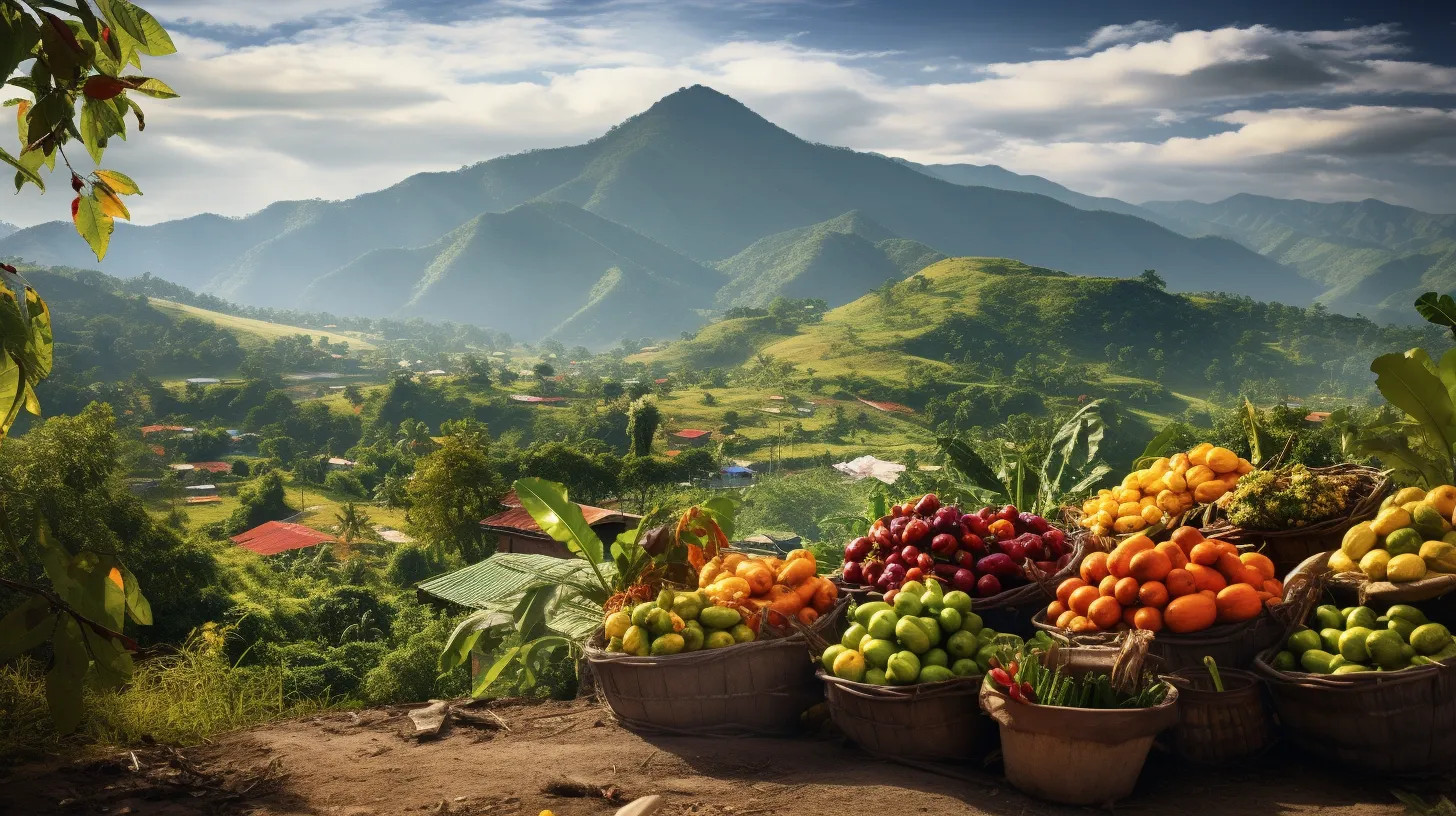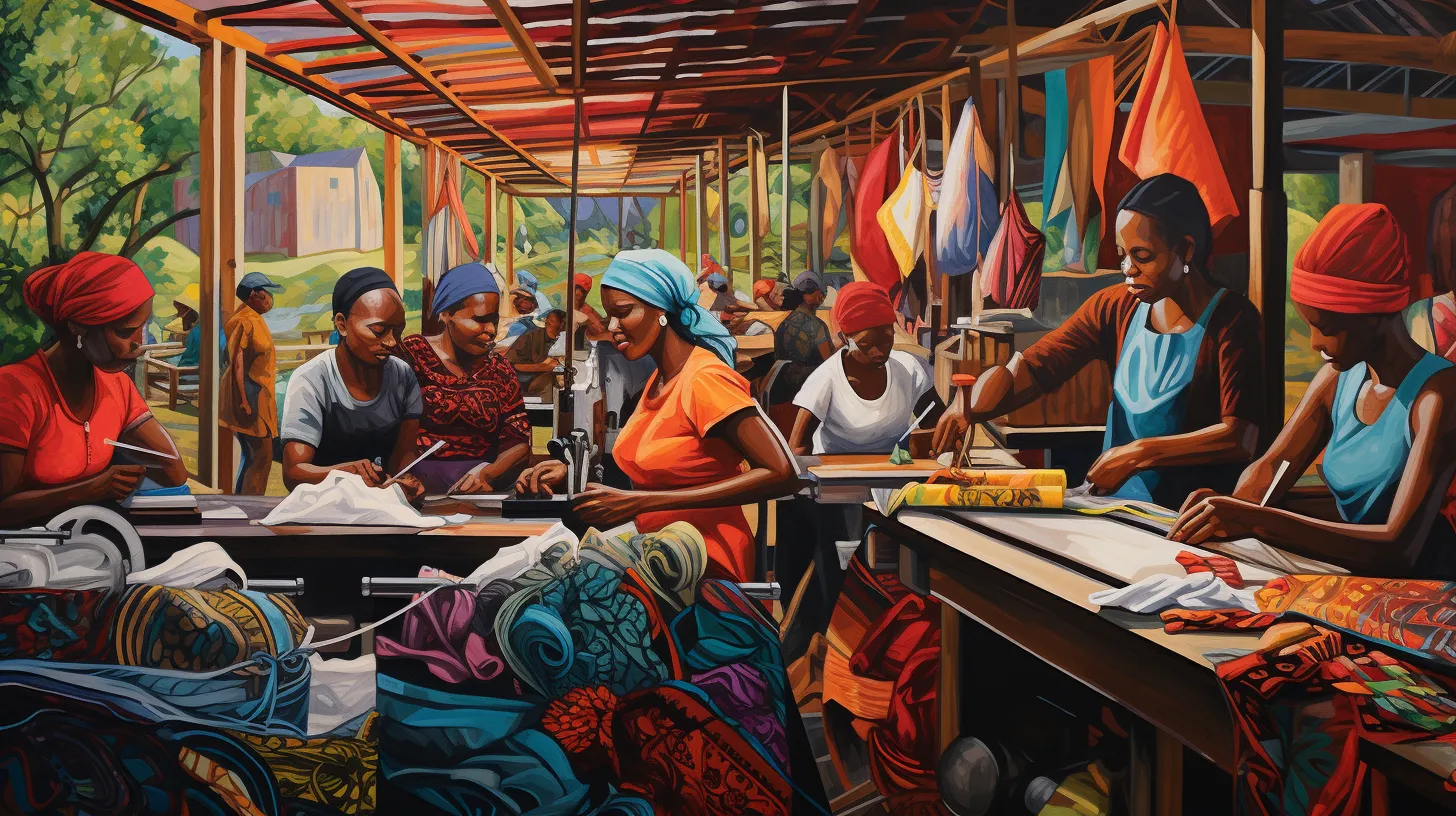Haiti is recognized for its diverse range of exports. The country produces textiles such as polo shirts and blue jeans, along with sought-after essential oils like vetiver.
Despite challenges from natural disasters and climate change, Haiti has a rich history of coffee and cocoa production. Additionally, mango farming and agriculture play a significant role in the country’s economy.
Haiti also has a flourishing handicraft industry and an abundance of fruits and vegetables, making its production capabilities varied and noteworthy.
Coffee and Cocoa

Haiti is known for producing high-quality coffee and cocoa. These cash crops play a significant role in Haiti’s economy, particularly in the agricultural sector.
The cultivation of coffee and cocoa has been a traditional practice in Haiti, with the potential to contribute substantially to the country’s economy. The production of these crops offers employment opportunities for many Haitians and supports their livelihoods.
Additionally, the high-end cocoa production in Haiti has garnered attention, with the bean-to-bar movement emphasizing fair wages and education for local cocoa growers. Despite facing challenges such as hurricanes and climate change, sustainable practices are being implemented to ensure the resilience and growth of the coffee and cocoa industry in Haiti.
Art and Handicrafts

The art and handicrafts industry in Haiti encompasses a wide range of products, including intricate textiles, essential oils, and cocoa, which contribute significantly to the country’s economy.
Haiti’s natural resources, particularly its rich soil and favorable climate, support the production of high-quality materials for artisanal goods. Family farms play a crucial role in this sector, with many small-scale farmers cultivating crops such as vetiver, cocoa, and mangoes.
The production of vetiver oil, used in high-end perfume production, has attracted investors who support sustainable farming practices for vetiver farmers. Similarly, the focus on sustainable farming practices and fair wages for local growers in the cocoa industry not only ensures the production of high-end cocoa but also supports the Haitian economy.
Essential Oils and Spices

Haiti’s essential oils and spices industry encompasses a diverse range of high-quality products sought after in global markets.
The production of vetiver oil, derived from the vetiver plant, is a significant contributor to Haiti’s economy. Vetiver oil is highly valued in the perfume industry, attracting investments that ensure sustainable farming practices. This has also helped vetiver farmers implement environmentally friendly methods, contributing to both the economy and the protection of the environment.
Despite facing challenges such as natural disasters, Haiti continues to be known for producing high-quality vetiver oil, which remains a vital ingredient in the production of premium perfumes.
The essential oils and spices industry not only highlights Haiti’s agricultural prowess but also its ability to produce sought-after products with global appeal.
Fruits and Vegetables

Known for its diverse agricultural output, Haiti boasts a rich variety of fruits and vegetables, contributing to both local consumption and export markets.
Mangoes stand out as Haiti’s most profitable fruit export, primarily grown in the southern regions, with production expanding northward over time. The mango season in Haiti typically runs from March to May.
Additionally, Haiti is renowned for high-end cocoa, mainly found in forested areas, supporting local growers with fair wages and education.
Other fruits cultivated in Haiti include plantains, bananas, and citrus fruits.
Despite subsistence farming being common in rural areas, key crops like coffee, mangoes, and sugarcane, alongside bananas, play a significant role in Haiti’s economy.
However, soil erosion poses a challenge to sustainable agricultural practices, impacting the production of fruits and vegetables.
Clothing and Textiles

Haiti produces a significant amount of polo shirts and blue jeans for export to the United States, driving its textile industry. The country’s textile sector plays a vital role in its economy, with serious investments made in the industry.
Factory workers in this sector earn higher wages compared to other fields, with monthly earnings ranging from $180 to $200. The textile industry also benefits from the bean-to-bar movement, which supports local cocoa growers in Haiti, providing education and fair wages.
Additionally, sustainable farming practices are being adopted to protect the environment and promote growth in the textile industry. The textile industry is a crucial source of employment for Haiti’s rural population, and it significantly contributes to the country’s GDP per capita and the development of the private sector.



